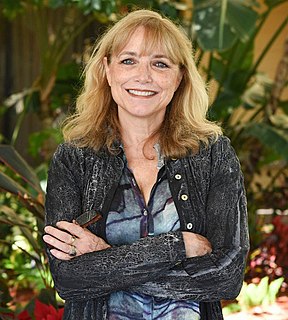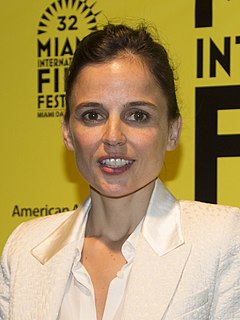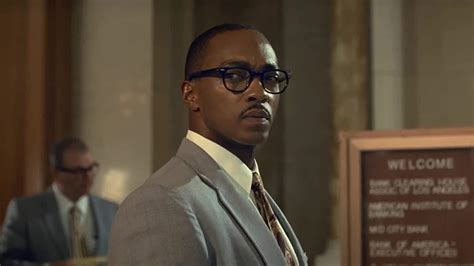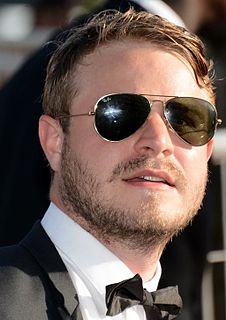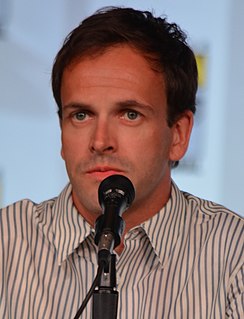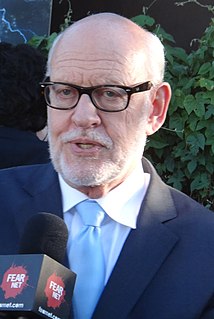A Quote by Karen Allen
I think that there is a real beauty to the live aspect of the theater, and the working with a director for a month on a script in the isolation of a room and really deeply delving into who are these people, what is the story we're telling, how do we want to tell it?
Related Quotes
The thing that I think a director has to have in order to make a movie really work, and to certainly make a film that feels personal, is that you have to have a sense of the feeling that you want to create in people, the tone which you want to tell the story, and the basic themes you want to come out. You can't compromise on those because you are then not making the movie that you are going to be good at telling.
I think that people have to have a story. When you tell a story, most people are not good storytellers because they think it's about them. You have to make your story, whatever story it is you're telling, their story. So you have to get good at telling a story so they can identify themselves in your story.
The thing that I think a director has to have in order to make a movie really work, and to certainly make a film that feels personal, which I hope this one does, is that you have to have a sense of the feeling that you want to create in people, the tone which you want to tell the story, and the basic themes you want to come out. You can't compromise on those because you are then not making the movie that you are going to be good at telling.
I don't really think I have the personality. I am not very external. I don't want to dance on the table and do impressions. So I think that the way I approach it is really loving story. That's my first love - the words. The words and the story and how to create images. I guess I come at that as a director. I think that's much more in my personality to be a director, so that's kind of informed my acting.
This is our story to tell. You’d think for all the reading I do, I would have thought about this before, but I haven’t. I’ve never once thought about the interpretative, the story telling aspect of life, of my life. I always felt like I was in a story, yes, but not like I was the author of it, or like I had any say in its telling whatsoever.
I've been a little disappointed in directors in America. I'm really after a theater that doesn't just deal with the actual texts that I brought in. But with a director that really deals with images too, that takes the play to another level. We have to remember that theater takes place in the third dimension, and we have to take into consideration the visual aspect of the play. I think images are important for the theater. Because I do write images.
I am very excited to work with people who have a strong vision of what they want. They're trying to tell a story, and they want to use me. I'm there to facilitate that. I really like that. I'm like, "Tell me where your frame is. Tell me what you want, what kind of story you want, and I will facilitate it." That's sort of my job, and it makes my work better when I'm working in that kind of a frame, and hopefully it's their work. It's incredibly collaborative, in the sense that you're working toward a common goal.
Theater is just so much more satisfying than film or television just because you deliver the whole thing from start to finish in one evening, and you can tell if people have enjoyed it or not. That's great to do every night to go in front of a full room of people and tell the story. There's nothing like that really.
I've found great virtue in two-thirds of the way into the message; right before I'm really want to nail home a point, pausing to tell a joke or to tell a light-hearted story, because I know my audience has been working with me now for 20 or 25 minutes. And if I can get them to laugh, get oxygen into their system, it wakes up those who might be sleeping, so there's something about using a story to draw people back in right before you drive home your final point. In that case I think it's real legitimate just to use a story for story's sake.
